I live in Christ and Christ lives in me, fulfilling the destiny God has planned in my book of life. Psalm 40:4-8
Psalm 40:4-8
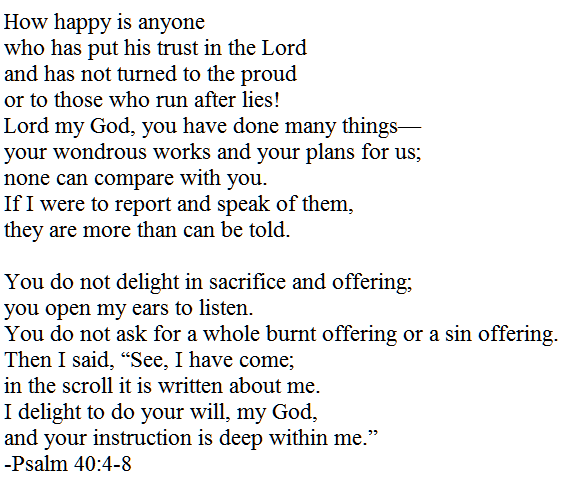
Psalm 40 is about:
Thanksgiving and a Cry for Help, CSB
My Help and My Deliverer, ESV
Faith Persevering in Trial, NKJV
A Joyful Salvation, TPT
God Sustains His Servant, AMP
From Clay to Rock, Don Williams
A Royal Liturgy of Supplication, Peter C. Craigie
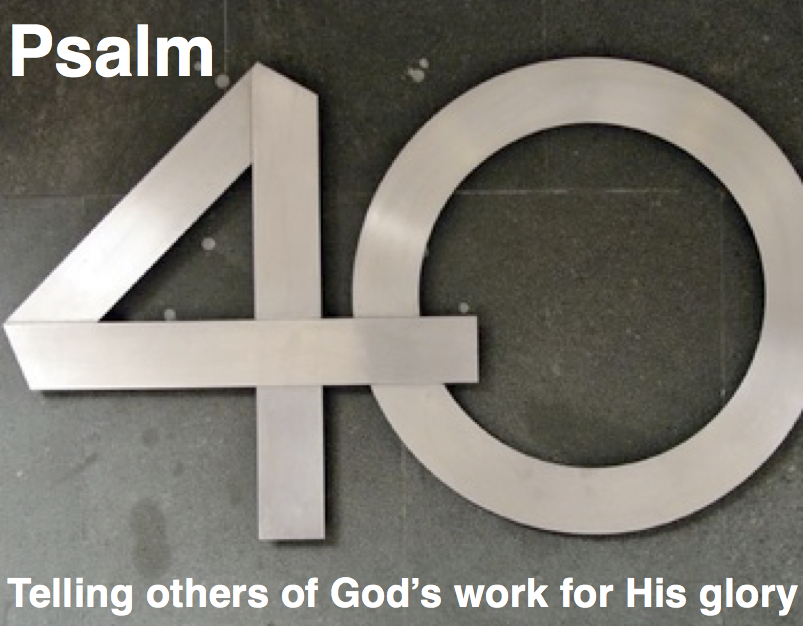
Psalm 40 begins with witnessing what God has done:
I waited patiently for the Lord,
and he turned to me and heard my cry...
He brought me up from a desolate pit,
out of the muddy clay,
and set my feet on a rock...
He put a new song in my mouth...
Many will see and fear...
vss1-3
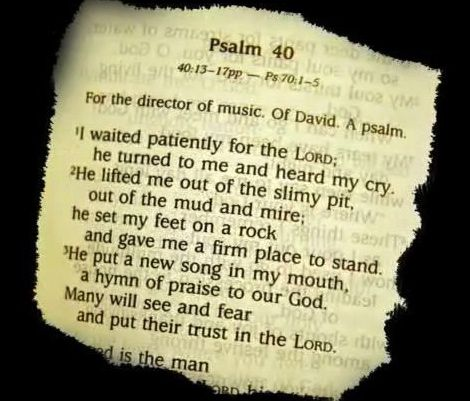
We move from "what", to "now what", to "how".
God saved me, changed my life, and this is how I now live.
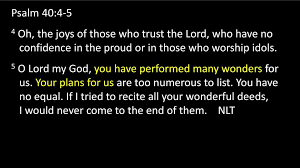
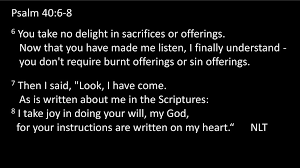
How happy is anyone who has put his trust in the Lord.
Spurgeon:
Wherever there is faith God is pleased with it. He has made it the main requirement of His gospel. It is the one thing needful in prayer. It is the mode and manner of the spiritual life: "the just shall live by faith".

How happy is anyone who has put his trust in the Lord.
Spurgeon:
Trust is our proper position towards God, and it supplies the link between us and Himself. The complete confidence of the heart is the essence of obedience and the fountain of it.

How happy is anyone who has put his trust in the Lord and has not turned to the proud or to those who run after lies!
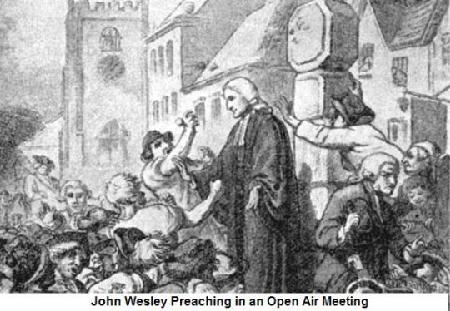
"The proud - Or, the mighty, the great and proud potentates of the world, to whom most men are apt to look and trust. Turn - From God, in whom alone they ought to trust. To lies - To lying vanities, such as worldly power and wisdom, and riches, and all other earthly things, or persons, in which men are prone to trust: which are called lies, because they promise more than they perform."
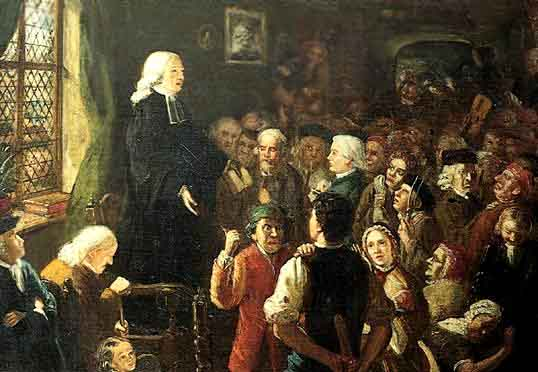
Lord my God, you have done many things—
your wondrous works and your plans for us;
none can compare with you.
-Psalm 40:5a
"'Wondrous works' means 'supernatural, extraordinary works.' It identifies God's direct interventions in history rather than the orderly display of nature.
your wondrous works and your plans for us;
none can compare with you.
-Psalm 40:5a
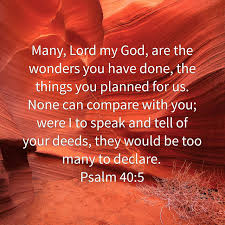
Thus David praises God for the direct manifestations of His saving power which have evoked his 'new song.'"
-Don Williams
If I were to report and speak of them, they are more than can be told.
-Psalm 40:5b
No matter how many plans God has, they are 'for us':
God's word and work.

Don Williams:
God is revealed in both His mighty works and in His word. The two must go together. The work is interpreted by the word, and the word is verified by the work.
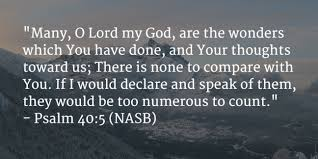
You do not delight in sacrifice and offering;
-Psalm 40:6a
This is not a condemnation of the sacrificial system in ancient Israel. The king must faithfully perform sacrifices. But that is not enough. More is required.
(Micah 6:8, Deut. 6:4-5, Lev. 19:18)

You open my ears to listen.
-Psalm 40:6b
Spurgeon:
"Mine ears hast thou opened." Readiness to hear, fixity of purpose, perfection of obedience, entireness of consecration.

You open my ears to listen.
(Literal, you hollow out ears for me)
-Psalm 40:6b
D. Cresswell:
Meaning, "Thou hast accepted me as thy slave," in allusion to the custom (Ex. 21:6) of masters boring the ear of a slave, who had refused his offered freedom, in token of retaining him.
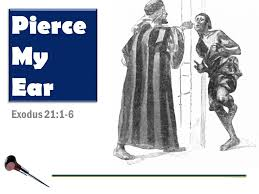
Wesley:
Opened - Heb. bored. I have devoted myself to thy perpetual service, and thou hast accepted of me as such, and signified so much by the boring of mine ears, according to the law and custom in that case, Ex. 21:5,6. Heb. 10:5, translates it, "a body hast thou prepared me".
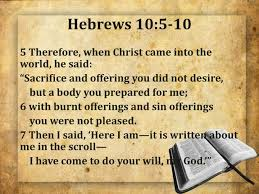
Barclay:
The writer to the Hebrews quotes it differently and in the second line has: "A body you have prepared for me." The explanation is that he was not quoting from the original Hebrew but from the Septuagint, the Greek translation of the OT.
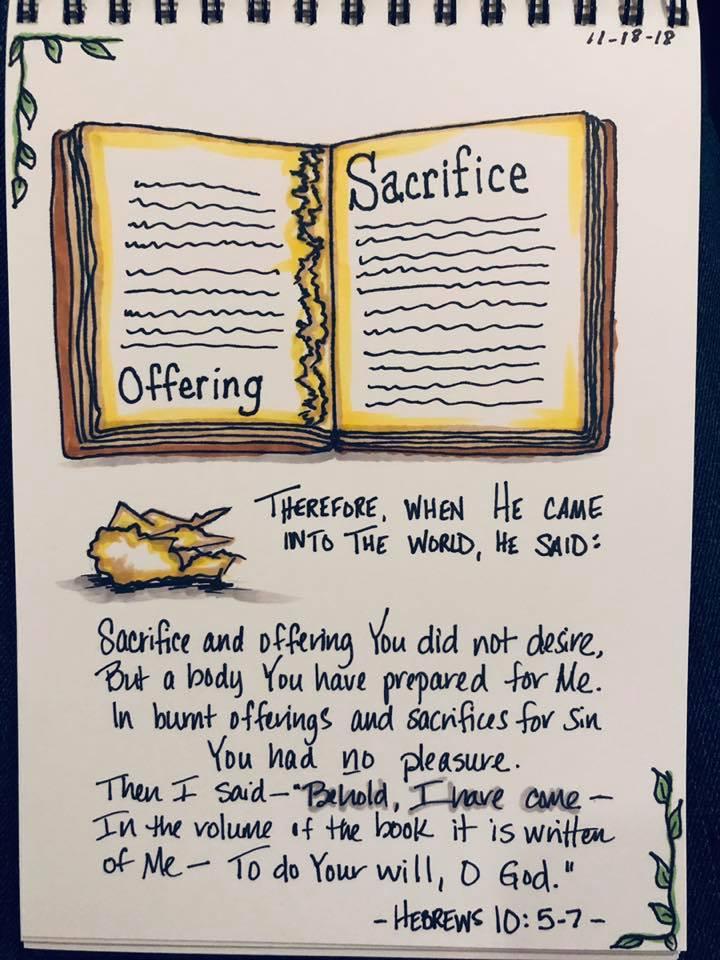
Barclay:
It is very likely that the writer to the Hebrews did not know any Hebrew at all and therefore it is the Septuagint that he uses. In any event the meaning of the two phrases is the same.

Barclay:
"Thou hast given me an open ear," means, "You have so touched me that everything I hear I obey." It is the obedient ear of which the psalmist is thinking. "A body you have prepared me," really, "You created me that in my body and with my body I should do your will."
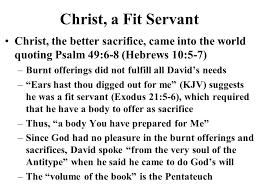
Barclay:
The writer to the Hebrews has taken the words of the psalm and put them into the mouth of Jesus. What they say is that God wants not animal sacrifices but obedience to his will.
Jesus was the perfect sacrifice because he perfectly did God's will.
Perfect obedience.

Then I said, “See, I have come; in the scroll it is written about me.
I delight to do your will, my God,
and your instruction is deep within me.”
-Psalm 40:7-8
David is reflecting on his obedience, his book of life, and prophesying about Jesus.

David's meditation is about how God wants obedience, how he desires to be obedient, and that one is coming who will be perfectly obedient.
What has been written about David is how he will be, is destined to be obedient.
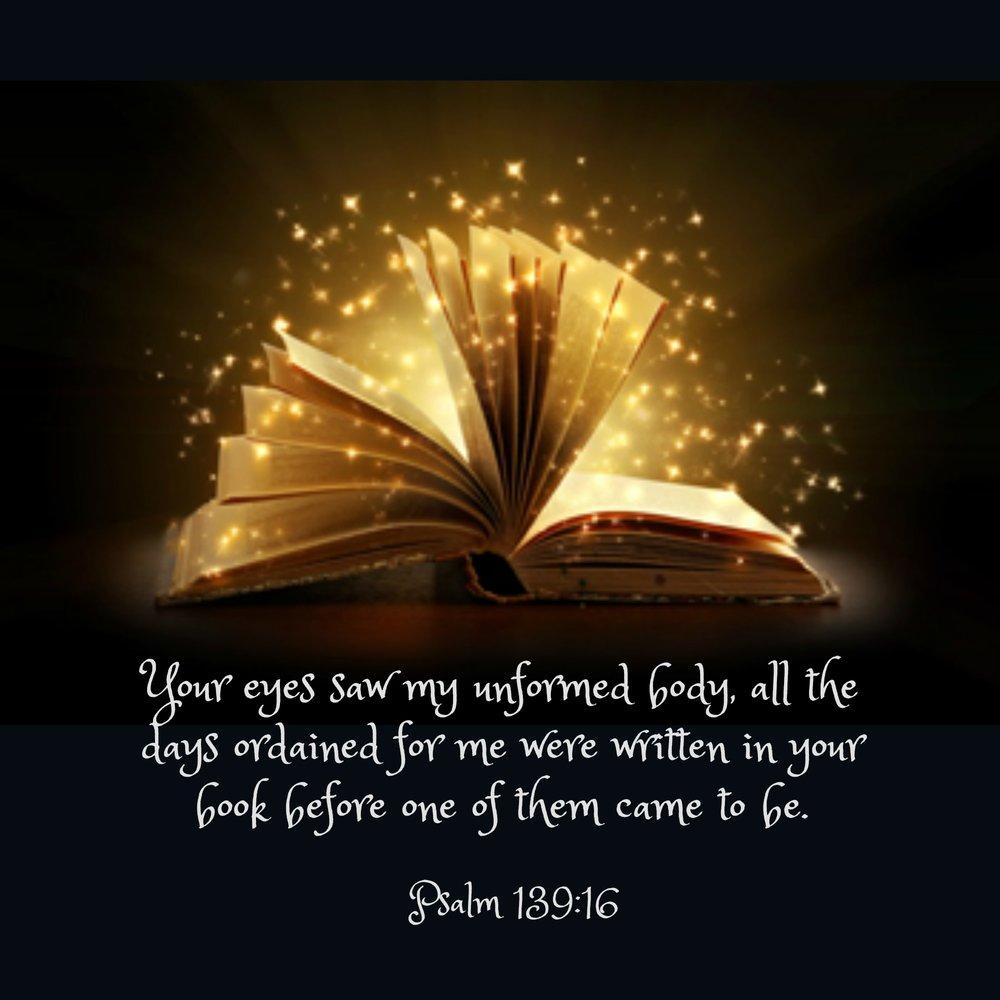

Jesus fulfills prophecies made about him in the OT and his book of life (Isaiah 61, Luke 4).
Psalm 40 started with "what?"
I waited for the Lord and he delivered me.
Then we move to "now what?"
Trusting God, living out seeing God's work and word going together.

Then "how to live?"
By obedience.
And the only way to walk in pure obedience is in Christ, who made the perfect sacrifice.
I live in Christ and Christ lives in me, fulfilling the destiny God has planned in my book of life.


Comments
Post a Comment